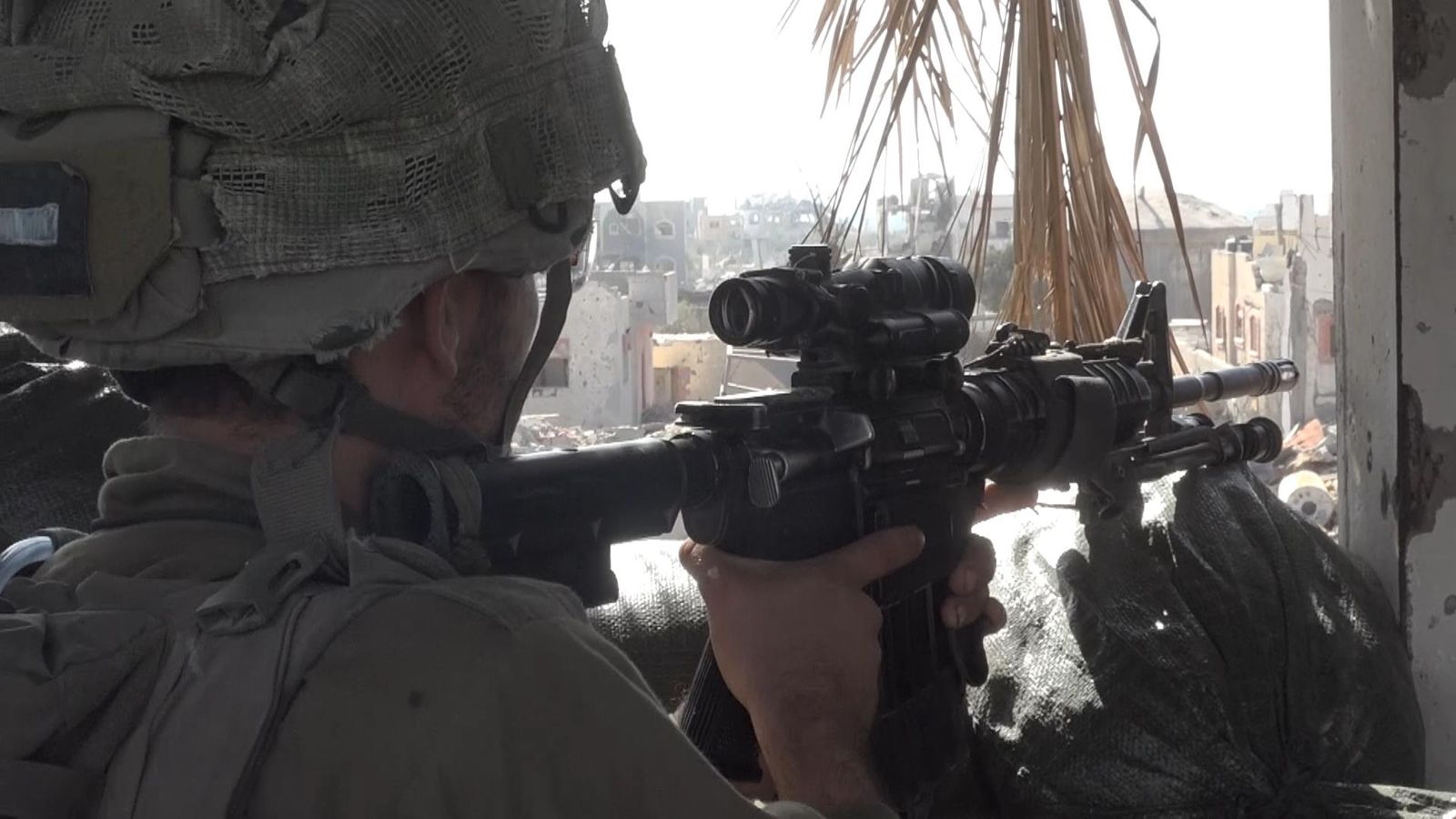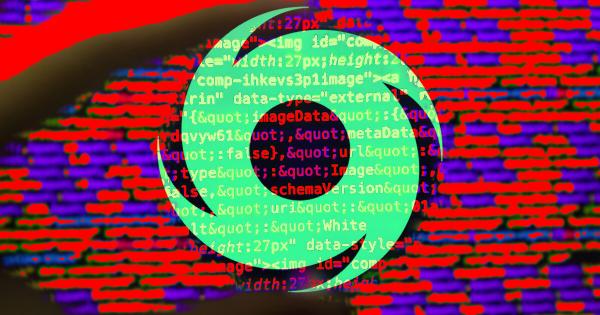Stepping out of the Israeli armoured personnel carrier, the sound of gunfire was immediate.
So too was evidence of the destruction from four weeks of war inside Gaza.
Journalists living in the Palestinian territory have been reporting on the ground from the beginning, but this is the first time Israel has allowed media to enter with its troops to see their operation.
“There are gun battles all through the town since we have been here,” said an officer who was escorting a small group of reporters that included Sky News.
Follow live: Hamas radio says missile fired at Gaza house of its leader
“We have seen a lot of Hamas, we have seen a lot of anti-tank missiles,” Lieutenant-Colonel Gilad said.
Israeli ground troops pushed into Gaza a week ago after three weeks of aerial bombardments.
Please use Chrome browser for a more accessible video player
Commanders say the goal is to “destroy” Hamas and secure the release of more than 230 hostages who were seized by the militants during an unprecedented terrorist attack on 7 October against Israel that triggered the war.
“We are here to make Hamas pay for what he did to us,” the officer said.
We were brought to an Israeli position just over a mile from the border in the central Gaza area. Gaza City could be seen in the distance.
Standing on a patch of dirt ground, we were on the edge of an area of shattered concrete buildings.
Israeli warplanes had targeted this neighbourhood before the troops went in.
Lt Col Gilad said a number of Hamas fighters who took part in the October 7 attack had come from this area.
No sign of life now.
An Israeli flag even hung from the rubble.
The troops have taken up a position in what they said had been a residential home that Hamas had used as an assembly point.
The officer said they had found an entrance next to the building to a network of tunnels that thread under the ground and are used by the militant group to attack Israeli targets.
He said there had also been rocket and missile launchers.
Israeli soldiers stood guard, rifles ready to shoot, from walls around the top floor of the house – which was an open roof.
As we walked through the building, heavy gunfire could be heard.
A second officer said two suspicious individuals had been spotted and Israeli troops had opened fire.
He also described some of the operations that had been conducted, including targeting a network of underground tunnels used by Hamas to launch attacks on Israeli forces.
Please use Chrome browser for a more accessible video player
“We go to search a tunnel in the east section over there,” he said.
“We find two tunnels and now we’re going to destroy them.”
Lt Col Gilad said there were around 200 Hamas fighters in this area alone
His brigade was thought to have killed around 30 militants, but this mission is not without huge risk.
Three soldiers from 828 brigade – a fighting unit that combines tanks, infantry soldiers and combat engineers – have died since the ground offensive began.
Another seven were killed responding to the 7 October attack.
But Palestinian civilians are paying a very heavy price as Hamas operates among the population. The Hamas-controlled health ministry has said more than 9,000 people have been killed in Gaza since the start of the war, more than a third of them children.
Asked how the civilian death toll impacted him as a soldier, Lt Col Gilad said: “Personally, I can tell you I haven’t seen one civilian here. We have been here for a week. I haven’t seen civilians.
“They all know the message and all of them – most of them – went for the south. The IDF is doing all what it can to separate between the population and the militants of Hamas.”
Read more from Sky News:
Which countries are calling for a ceasefire?
Average person in Gaza living on two pieces of bread per day – UN
Hezbollah leader warns of possible escalation
He said that his troops were helping to open a new humanitarian corridor for the civilians who have not yet moved to the south of Gaza.
The soldiers regularly move locations – they carry everything on their back.
Their current position is secure enough for the troops to make lunch. They heat up sweetcorn in cans and make tuna rolls.
One young soldier, sitting down, said he was proud to serve.
“We are taking care that 7 October will never happen again,” he said.





